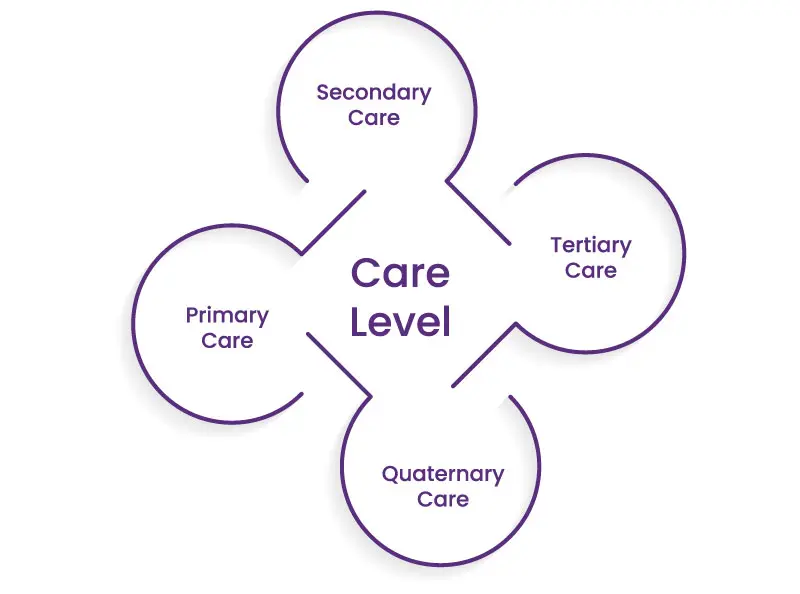Are you a healthcare provider experiencing difficulties in navigating the complex world of nursing home billing and coding? Nursing Homes have an immense role to play, whether for long-term or short-term care. Nursing homes can be categorized into ALF( Assisted Living Facilities), SNF (Skilled Nursing Facilities SNF), and ALC (Assisted Living Centers).
This comprehensive guide will break down the latest nursing home billing guidelines and decipher billing code codes, giving you an understanding of constantly changing CMS guidelines to ensure your facility receives the proper reimbursement for the vital care provided to your residents.
Nursing Home Billing Guidelines
Nursing homes, also known as skilled nursing facilities, provide around-the-clock medical care and assistance with daily living activities for older adults and those with chronic health conditions.
These facilities are essential to the healthcare system, as they allow individuals to receive the care they need in a safe and comfortable environment. However, with the care and services provided come billing and reimbursement responsibilities for the nursing home administrators.
To ensure proper reimbursement and compliance with regulations, nursing home administrators must understand and follow the various nursing home billing guidelines set forth by Medicare and Medicaid and private insurance companies.
Care Level
The level of care provided by a nursing home facility is the primary determinant of how much reimbursement you can expect from insurance providers.

Knowing what type of care your residents need and ensuring that your facility meets these requirements can help ensure proper payment for services rendered. There are four types of care involved:
- Primary care is the cornerstone of healthcare, where general practitioners such as physicians, nurse practitioners, and physician assistants provide a wide range of medical services to individuals dealing with common illnesses and injuries. These providers act as the first point of contact for patients and play a vital role in the healthcare system.
- Secondary care is the next step in the healthcare journey. Primary care providers refer patients to specialists such as pathologists and oncologists for more in-depth treatment and management of specific conditions. These specialists provide expert care and play a critical role in diagnosing and treating complex conditions.
- Tertiary care is the highest level of specialty care, where advanced technologies and procedures are employed to tackle complex and severe cases. These specialized facilities, such as dialysis and neurosurgery centers, provide the most specialized care and play a vital role in saving lives and improving the quality of life for patients.
- Quaternary care is the cutting-edge of healthcare, where the most advanced and experimental treatments are offered to patients. These treatments are typically only available at select institutions and often involve a multidisciplinary approach to care. Quaternary care is critical in pushing the boundaries of what is possible in healthcare and advancing medical knowledge.
Insurance Plans Coverage Criteria
Medicare Part A and Part B plans have distinct acceptance criteria for nursing home services. Under Part A, a patient in a nursing facility is covered for 20 days. Beyond the 21st day, Medicare will provide partial coverage for services, and co-insurance will apply.
It is important to note that coverage criteria are limited to the extent of available benefits. Once the patient's benefits have been exhausted, the nursing facility staff will submit claims to the resident for additional coverage.
Medicare part B coverage kicks in for long-term care facilities once the patient has been disqualified for part A Coverage. Some of the most often reimbursed services in long-term care are physical, occupational, and speech therapy services.
Billing Period for Nursing Home
Claims for Nursing home billing are sent monthly. Nursing homes usually bill patients by using CMS-1450 (which is also called UB-04). Claims can also be sent if the patient is:
- Dropped from skill care
- Discharged
- Benefits are exhausted
For providers to bill accurately, they should remember that proper documentation is made.
Billing Cycle
The billing cycle for nursing home services requires a series of steps that ensure accurate and timely billing to patients or their insurance providers.
- First, the MAC (Medicare Administrative Contractor) will return a continuing stay bill if the prior bill has not yet been processed. In this case, it is important to hold onto the returned bill until the Remittance Advice (RA) for the prior bill has been received.
- Next, it is important to note that certain days, such as the day of discharge or death or the day when a patient begins a Leave of Absence (LOA), are not counted as utilization days for billing purposes. Additionally, if a patient discharges and returns before the following midnight, it is not considered a discharge for billing purposes.
- Another important aspect of the billing cycle is the HIPPS rate code that appears on the claim. This code must match the assessment transmitted and accepted by the state where the facility operates.
- Once all the information is collected and verified, the bill is submitted to the patient or insurance provider. The payment is then processed, and the facility receives a Remittance Advice (RA) indicating the payment amount and any adjustments made to the bill.
- Finally, the billing cycle is completed when the facility receives payment for the services provided, and the billing records are updated accordingly. It is important to note that the billing cycle may vary depending on the facility's policies, procedures, and the type of services provided.
Following the proper nursing home billing guidelines, a path can be set for proper reimbursement from the insurance side. This should also be kept in mind that guides are constantly changing, so it’s better to follow up with CMS to remain updated.
What are the codes used in Nursing Home Billing
In nursing home billing, several codes are used to describe the services provided to patients accurately.
ICD-10 codes: These codes are used to indicate the diagnosis of the patient and are used for billing medical procedures and services.
HCPCS codes: These codes are used to indicate the specific services or supplies provided to the patient and are used for billing Medicare and Medicaid.
CPT codes: These codes are used to indicate the specific procedures or services provided to the patient and are used for billing private insurance.
Revenue codes: These codes indicate the type of service provided and are used for billing Medicare and Medicaid.
CPT Codes used in Nursing Home Billing
In nursing home billing, Current Procedural Terminology (CPT) codes are used to indicate the specific procedures or services provided to patients. These codes are used for billing private insurance and are developed and maintained by the American Medical Association (AMA).
Examples of CPT codes that are primarily used in nursing home billing include:
- Evaluation and management codes (99304-99306) - to bill for physician visits, including initial evaluations and consultations.
- Nursing Home Discharge Management codes (99315 & 99316) – to be billed when for nursing facility discharge day management
- Follow-Up Codes(99307-99310) – Used to be billed for subsequent nursing facility care visits
- Procedure codes (10040-69990) - are used to bill for procedures such as wound care, injections, and diagnostic tests.
- Physical therapy codes (97001-97755) - These codes are used to bill for physical therapy services provided by a therapist or assistant.
- Occupational therapy codes (97001-97755) - used to bill for occupational therapy services provided by a therapist or assistant.
- Speech-language pathology codes (92526-92625) - used to bill for speech-language pathology services provided by a therapist or assistant.
It's important to note that the codes used will depend on the specific services provided, so it's essential to refer to the AMA's CPT codes for the most up-to-date information. Additionally, it's important to check with the facility's billing department and the private insurance company to ensure that the codes used are valid for reimbursement.
Modifiers Used Along CPT Codes
Modifiers are used in conjunction with CPT codes to indicate that a service or procedure has been modified in some way.
Here are some examples of modifiers that how modifiers are used in nursing home billing:
Modifier 25: This modifier indicates that a significant, separately identifiable Evaluation and Management (E/M) service was provided on the same day as a procedure or service.
Modifier 59: This modifier indicates that a procedure or service was distinct or independent from other services performed on the same day.
Modifier 51: This modifier indicates that multiple procedures were performed during a single session.
Modifier -52: This modifier is used to indicate that a procedure or service was partially reduced or eliminated at the physician's discretion.
Modifier -53: This modifier is used to indicate that a procedure or service was discontinued due to extenuating circumstances.
Modifier -74: This modifier is used to indicate that a procedure or service was performed in a teaching setting by a resident under the direct supervision of an attending physician.
It is important to note that the use of modifiers may vary depending on the payer, so it's essential to check with the facility's billing department and the private insurance company to ensure that the codes and modifiers used are valid for reimbursement. Additionally, the facility may have some restrictions on certain modifiers, so it's essential to check with the facility's billing department for guidance.
Words by Author
Navigating the constantly evolving landscape of nursing home billing can be challenging for healthcare providers. However, providers can maximize reimbursement for their services by adhering to the CMS nursing home billing guidelines and utilizing the appropriate coding schema.
Outsourcing nursing home billing services to a reputable and affordable company, such as HMS USA LLC in NY, can alleviate the burden and complexity of this task, allowing providers to focus on providing quality care to their patients.
ABOUT AUTHOR

Tammy Carol
As a blog writer with years of experience in the healthcare industry, I have got what it takes to write well researched content that adds value for the audience. I am a curious individual by nature, driven by passion and I translate that into my writings. I aspire to be among the leading content writers in the world.
